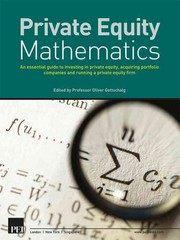Question
Task 1 Select an organisation with which you are familiar, and which has been listed in FTSE (or any equivalent in your own country). Produce
Task 1
Select an organisation with which you are familiar, and which has been listed in FTSE (or any equivalent in your own country). Produce a report that addresses the following requirements:
- Identify, evaluate and assess the impact that three key resource decisions have both internally and externally on your organisations performance and effectiveness, and evaluate the risks that can occur from inadequate resources. In your response, discuss the tools and techniques you would use in planning and allocating resources.*
2. Analyse financial statements from your organisation to determine its financial viability and make financial recommendations based on sourced information. Your answer should incorporate the application of financial ratios where this is appropriate to improving information quality.
3. Use various strategies and tools to monitor and evaluate your organisations intangible and tangible resources. Use appropriate techniques to assess how efficiently these are utilised. Explain within your response the value that intangible resources can have for organisations.
- Explain the importance of costs in pricing strategies and recommend improvements to your organisations existing costing system. Within your response you should design a costing system for your selected organisation, having explained different approaches to costing and choosing the most appropriate approach for your chosen organisation.
Task 1 Word Count (formal report)
3000 words maximum.
* Your answer must address key resource decisions, not resources themselves
1 Assessment Criteria and Mark Scheme
| Assessment Criteria | Marks allocated | Comments | Mark Given |
| Identify, evaluate and assess the impact that three key resource decisions have both internally and externally on your organisations performance and effectiveness, and explain the risks that can occur from inadequate resources. In your response, discuss the tools and techniques you would use in planning and allocating resources.
| 25 | Types of resources, including human, financial, physical ; the impact of resource decisions on organisational objectives
Tools and techniques, such as budgeting, gap analysis, manpower planning, resource management software, resource histograms, conflict management
Types of risk, for example financial risks, manpower risks, performance risks, reputational risks
|
|
| Analyse financial statements from your organisation to determine its financial viability and make financial recommendations based on sourced information. Your answer should incorporate the application of financial ratios.
| 20 | Financial statements, for example balance sheet, income statement (profit and loss account), cash flow statement, budgets
Financial ratios, for example liquidity or solvency ratios, financial leverage or debt ratios, asset efficiency or turnover ratios, profitability ratios, market value ratios
Evaluate information from the financial analysis and ratios to make financial recommendations.
|
|
| Use various strategies and tools to monitor and evaluate your organisations intangible and tangible resources. Use appropriate techniques to assess how efficiently these are utilised.
| 20 | Tangible resources: fixed and current, for example physical items including cash, inventory, machinery, land or buildings, vehicles; intangible resources, for example copyright, patents, trademarks, goodwill, corporate image, reputational risk and their value to organisations
Efficiency as the total amount of resources actually consumed, compared against the amount of resources planned for a specific process; approaches to measuring efficiency such as benchmarking against accepted best practice
|
|
| Explain the importance of costs in pricing strategies and recommend improvements to your organisations existing costing | 25 | Pricing strategies, for example premium pricing, market penetration, economy pricing, price skimming |
|
| system. Within your response you should design a costing system for your selected organisation having explained different approaches to costing and choosing the most appropriate approach for your chosen organisation.
|
|
Costing systems, for example historical costing, absorption costing, direct costing, marginal costing, standard costing, uniform costing
|
|
Step by Step Solution
There are 3 Steps involved in it
Step: 1

Get Instant Access to Expert-Tailored Solutions
See step-by-step solutions with expert insights and AI powered tools for academic success
Step: 2

Step: 3

Ace Your Homework with AI
Get the answers you need in no time with our AI-driven, step-by-step assistance
Get Started


